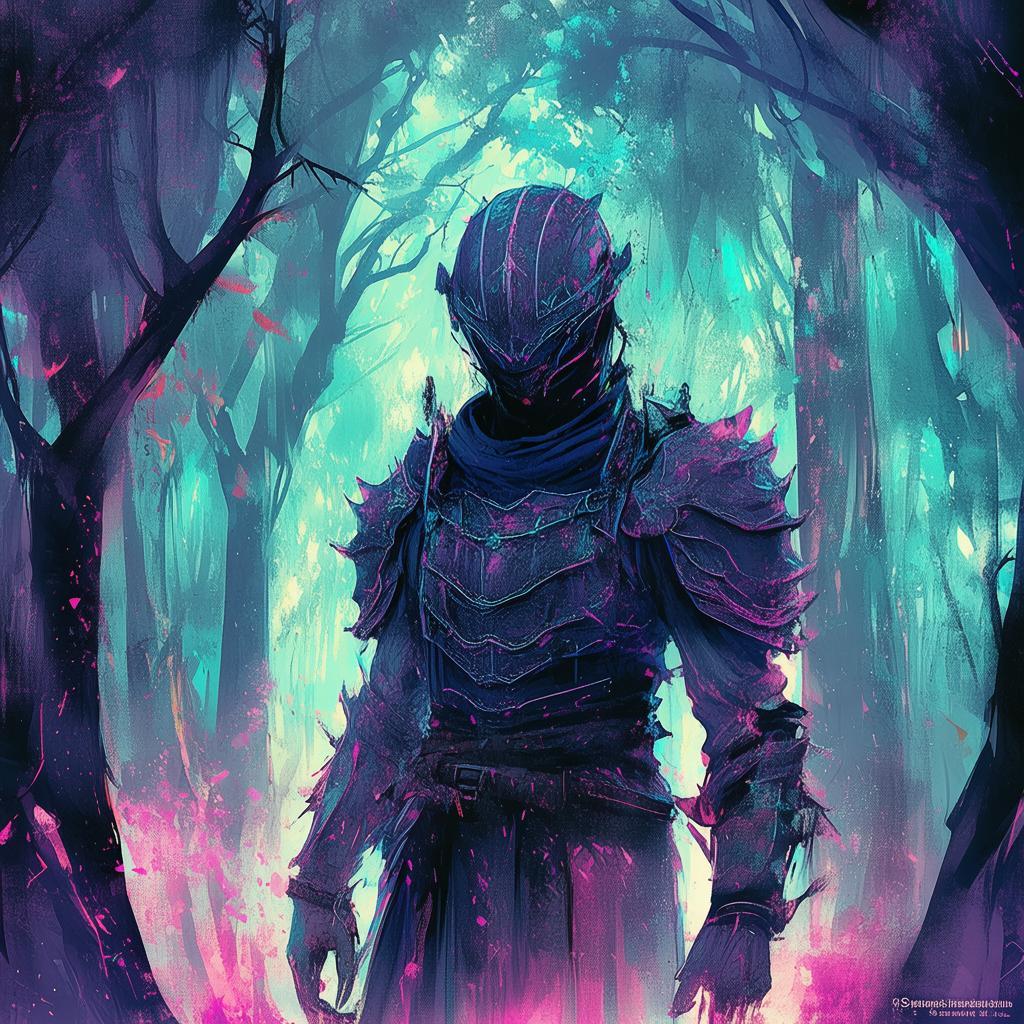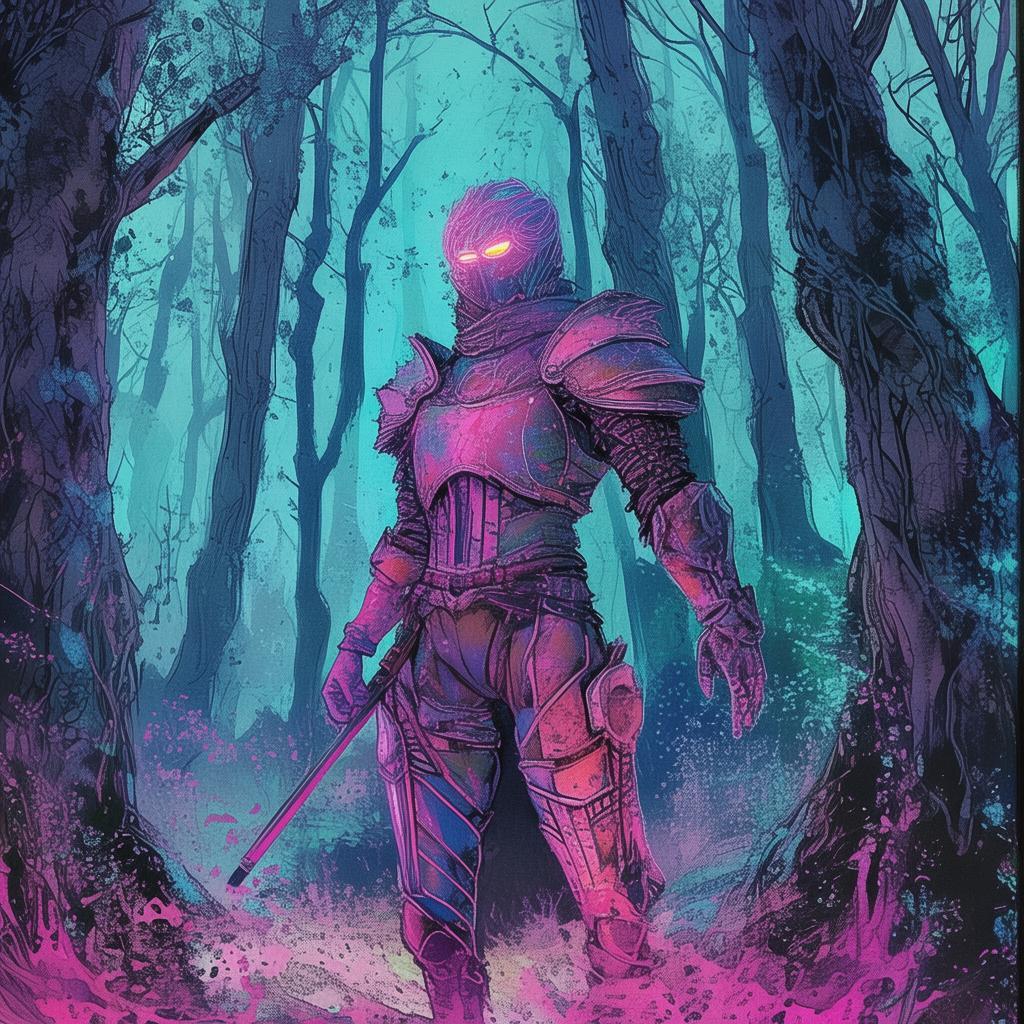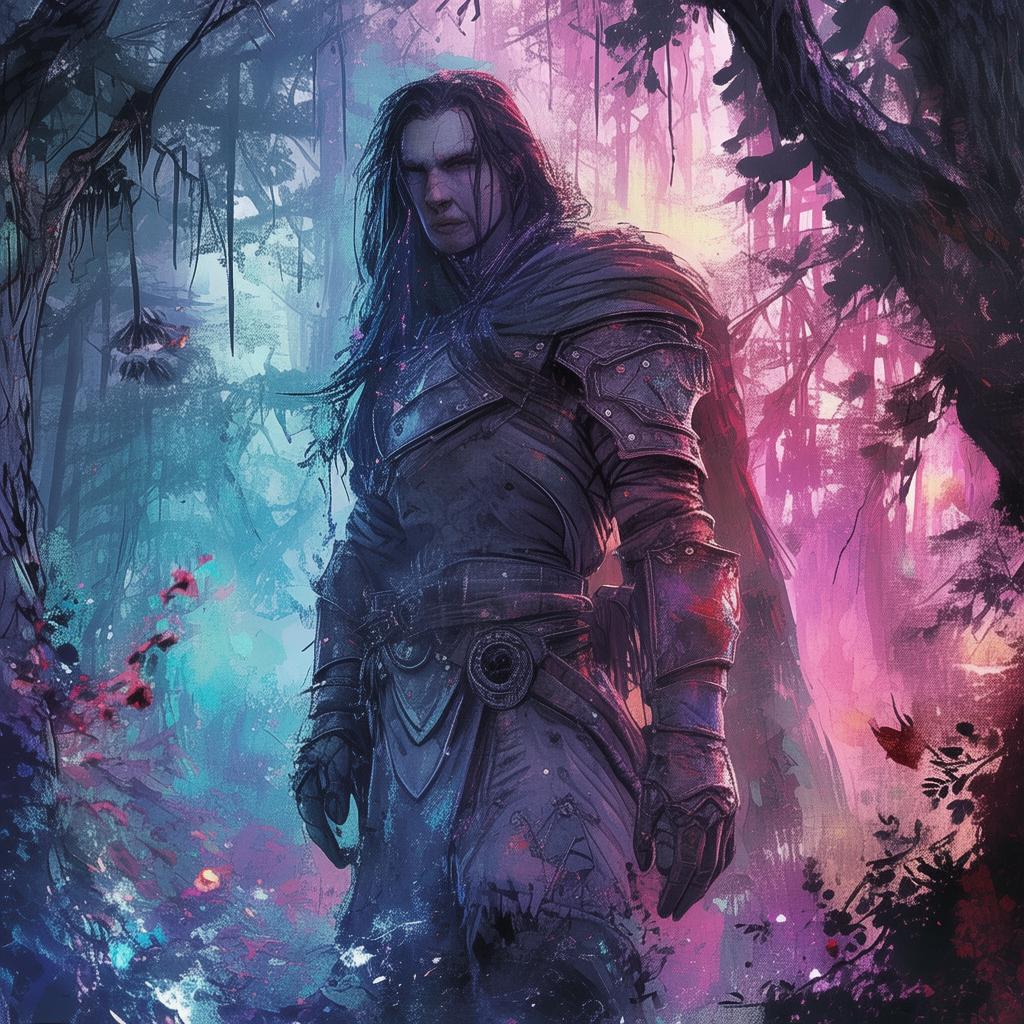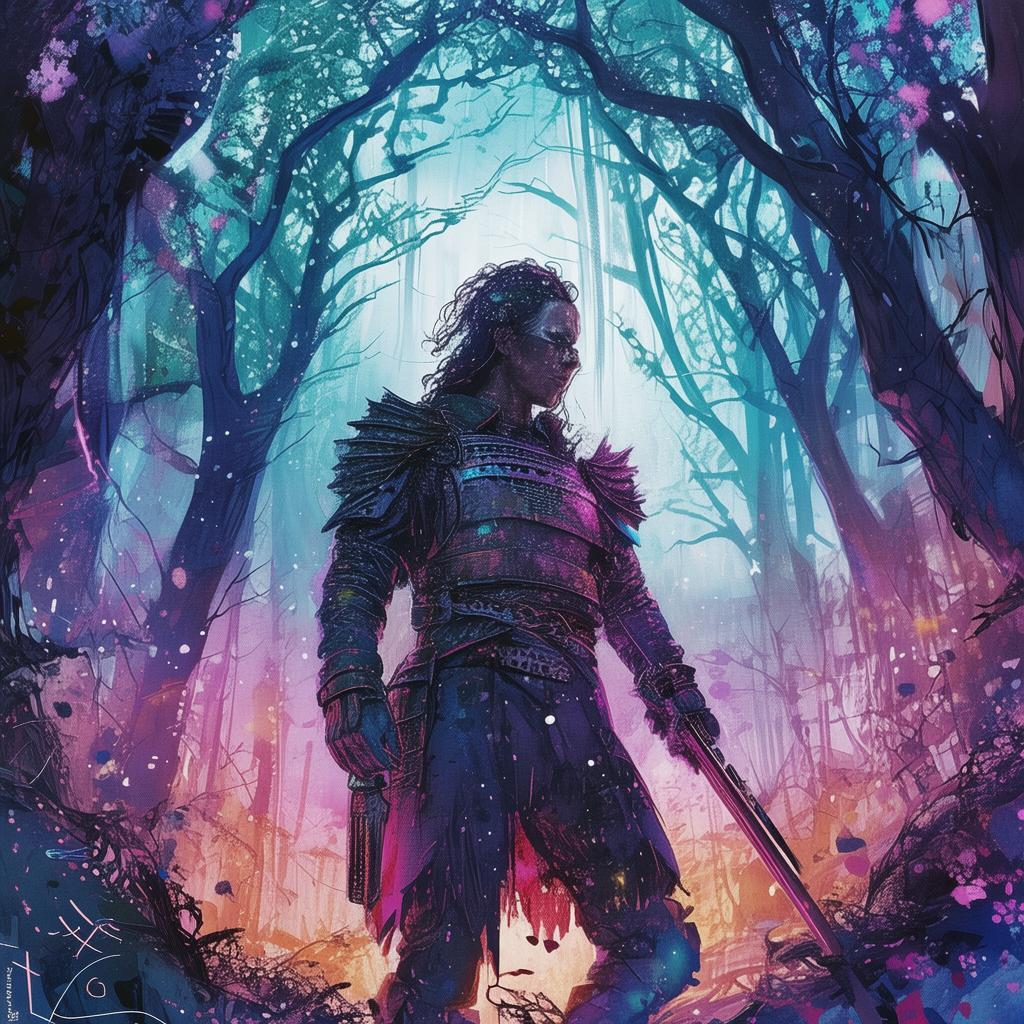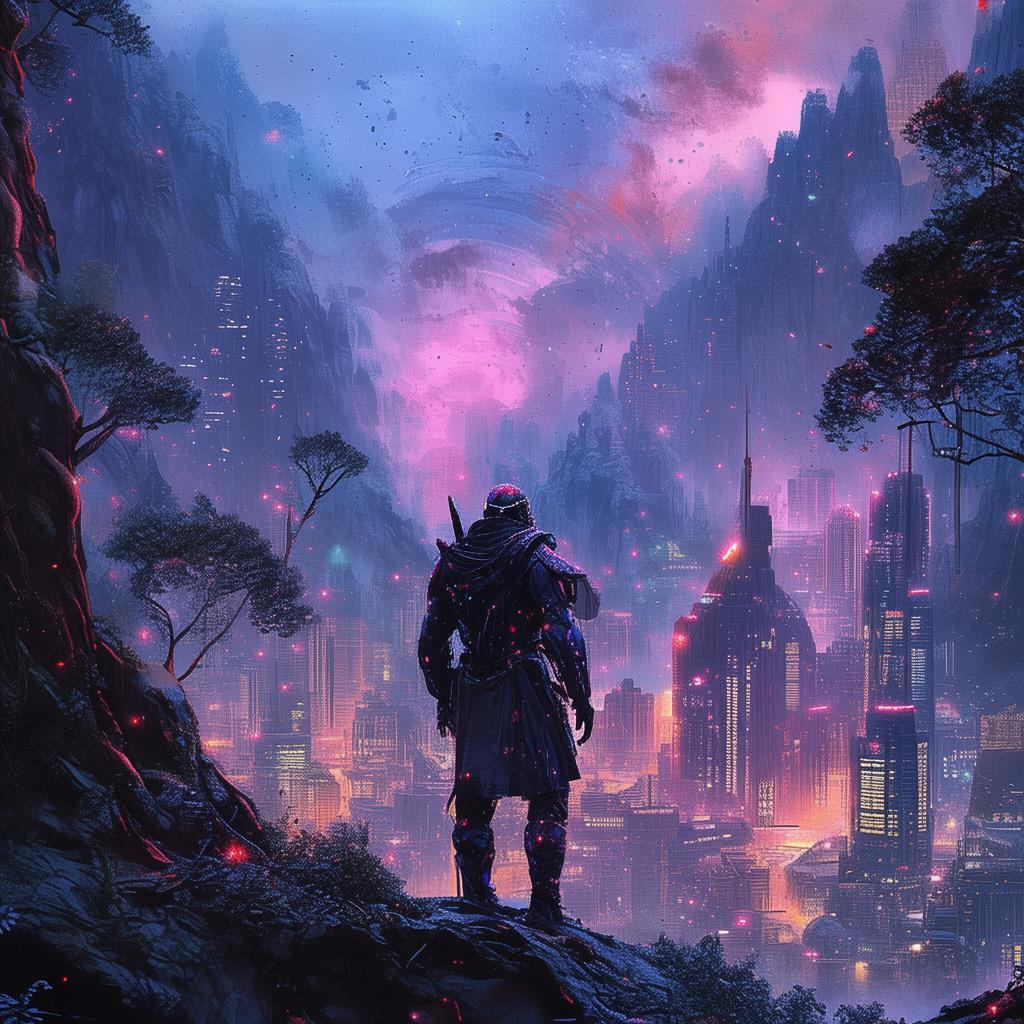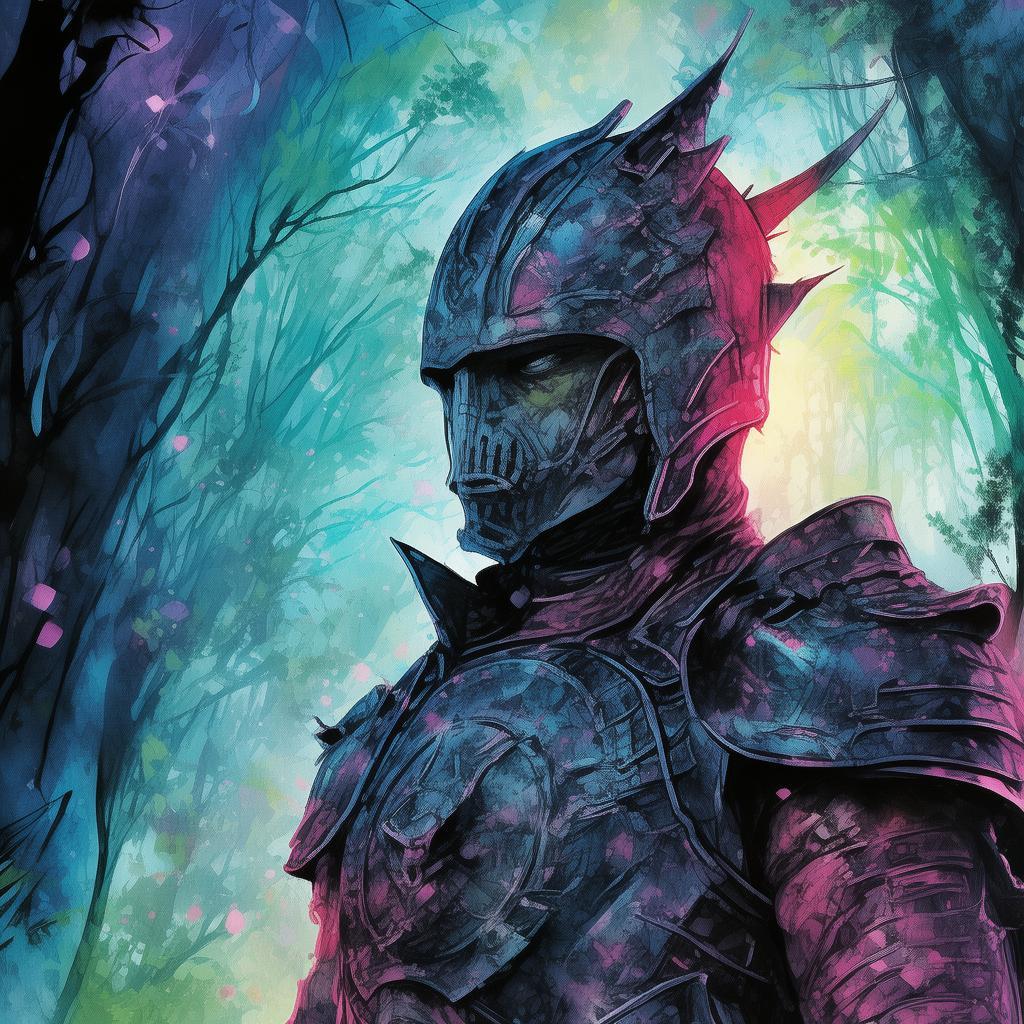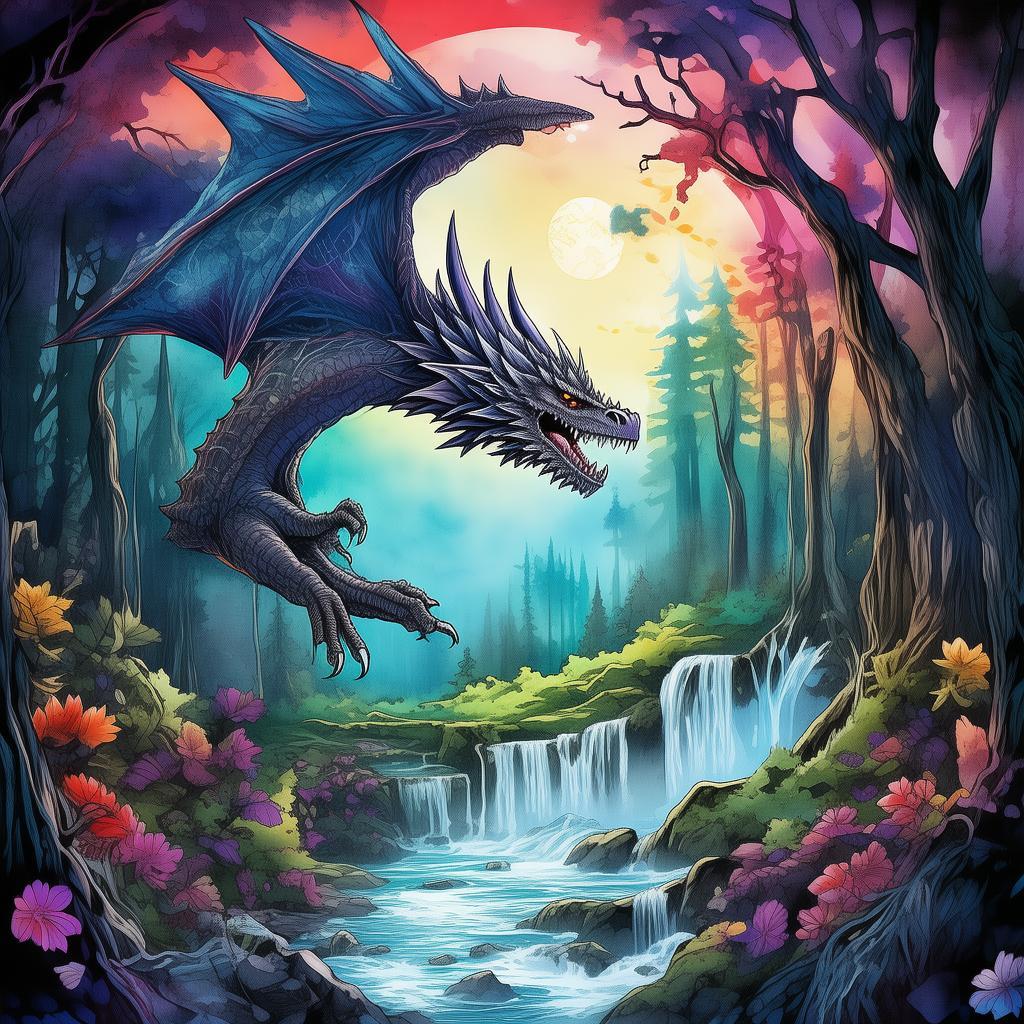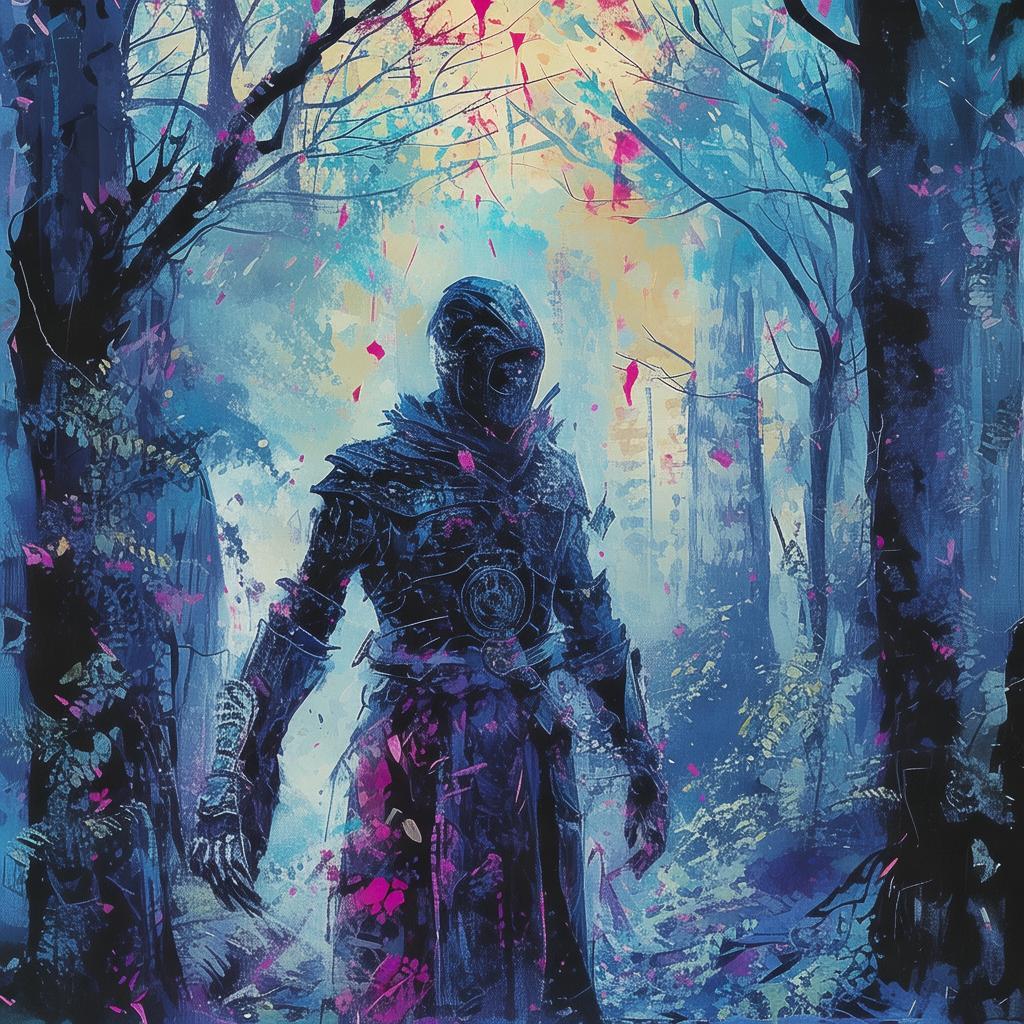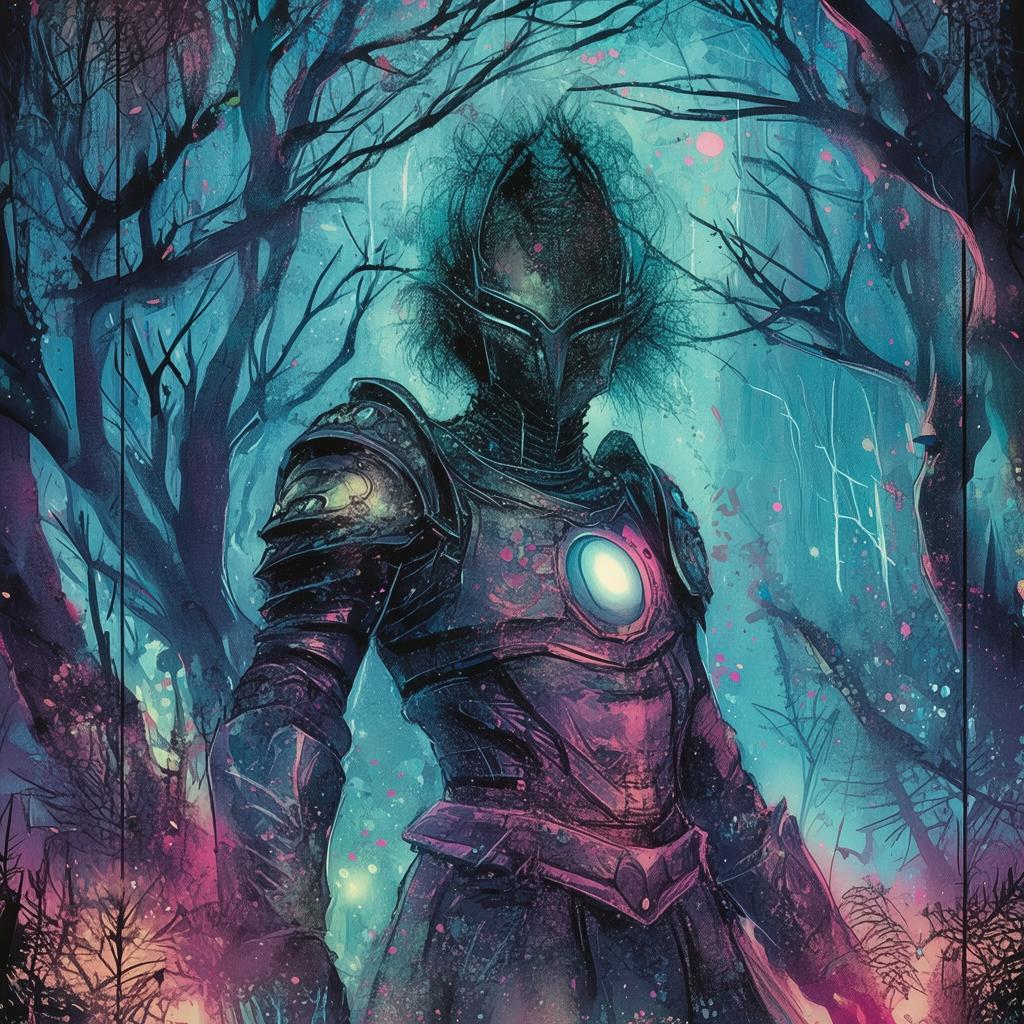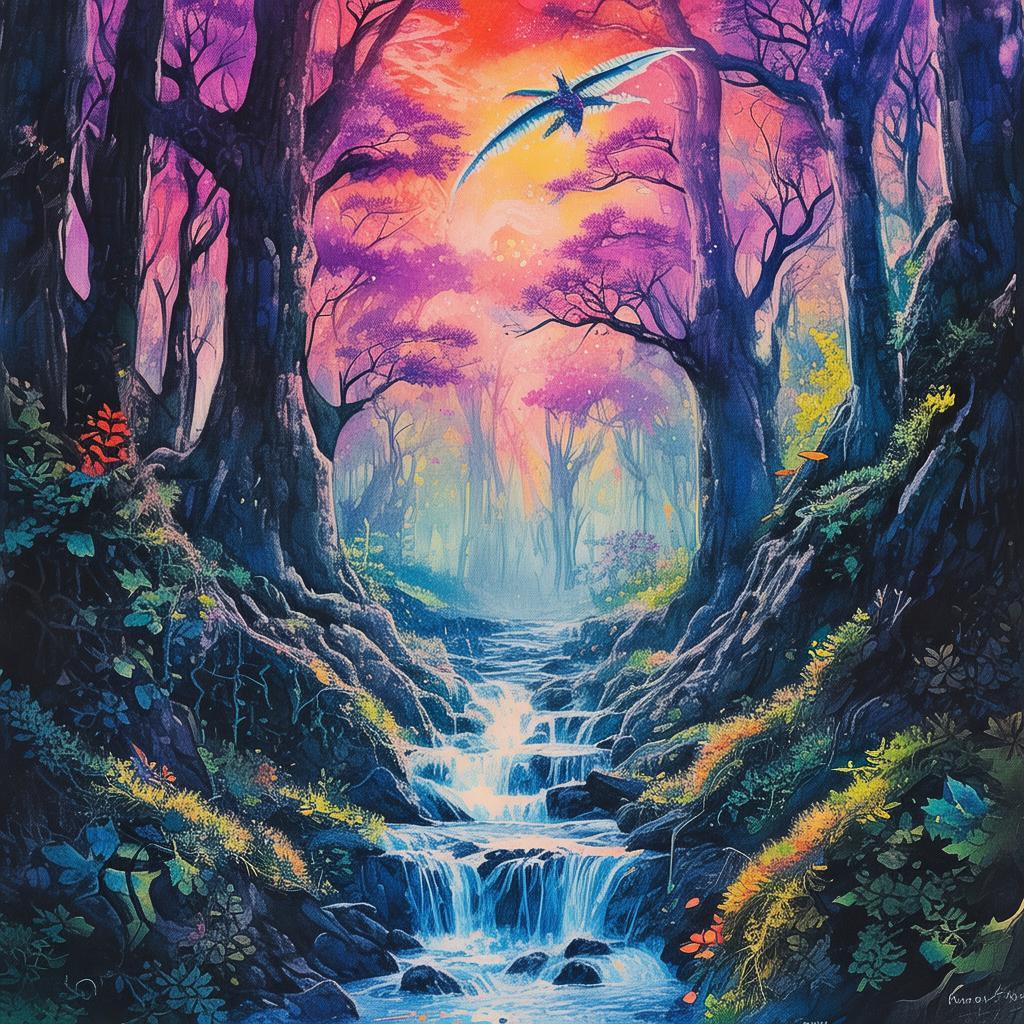The Guang'an Dilemma: The Parallel Worlds Paradox
The sun dipped below the horizon, casting a golden hue over the tranquil village of Guang'an. The villagers were in the midst of a celebration, a festival that marked the anniversary of the village's founding. Amidst the laughter and the sound of traditional music, a young man named Li Hua wandered alone through the crowd. His eyes were fixed on a peculiar mirror, its frame intricately carved with symbols that seemed to pulse with an ancient energy.
Li Hua had always been a curious soul, but the mirror was unlike anything he had ever seen. It was said to be the village's oldest relic, a relic that had been hidden away for generations. The villagers whispered tales of its power, but no one had dared to use it until now.
As the festival drew to a close, Li Hua felt a sudden urge to touch the mirror. With a deep breath, he reached out and placed his hand on the cool surface. The world around him blurred, and he was no longer in the village square. He found himself in a parallel world, a world that looked identical to Guang'an but felt different in the most profound ways.
The people of this world spoke the same language, wore the same clothes, and celebrated the same festivals. Yet, there was a sense of familiarity that was unsettling. Li Hua realized that he was in a world where he was born into a different family, with a different life. He was Li Hua, but not the Li Hua he knew.
The parallel world was a mirror of his own, but with one crucial difference: in this world, Li Hua's father had never abandoned him. His mother had died in childbirth, and his father had raised him as his own son. Li Hua was the beloved heir to a powerful family, a family that had been influential in the village for generations.
As Li Hua navigated this new life, he began to uncover the mysteries of the parallel worlds. He learned that the mirror was a portal, a connection between his world and the parallel one. It was a paradox, a riddle that only he could solve.
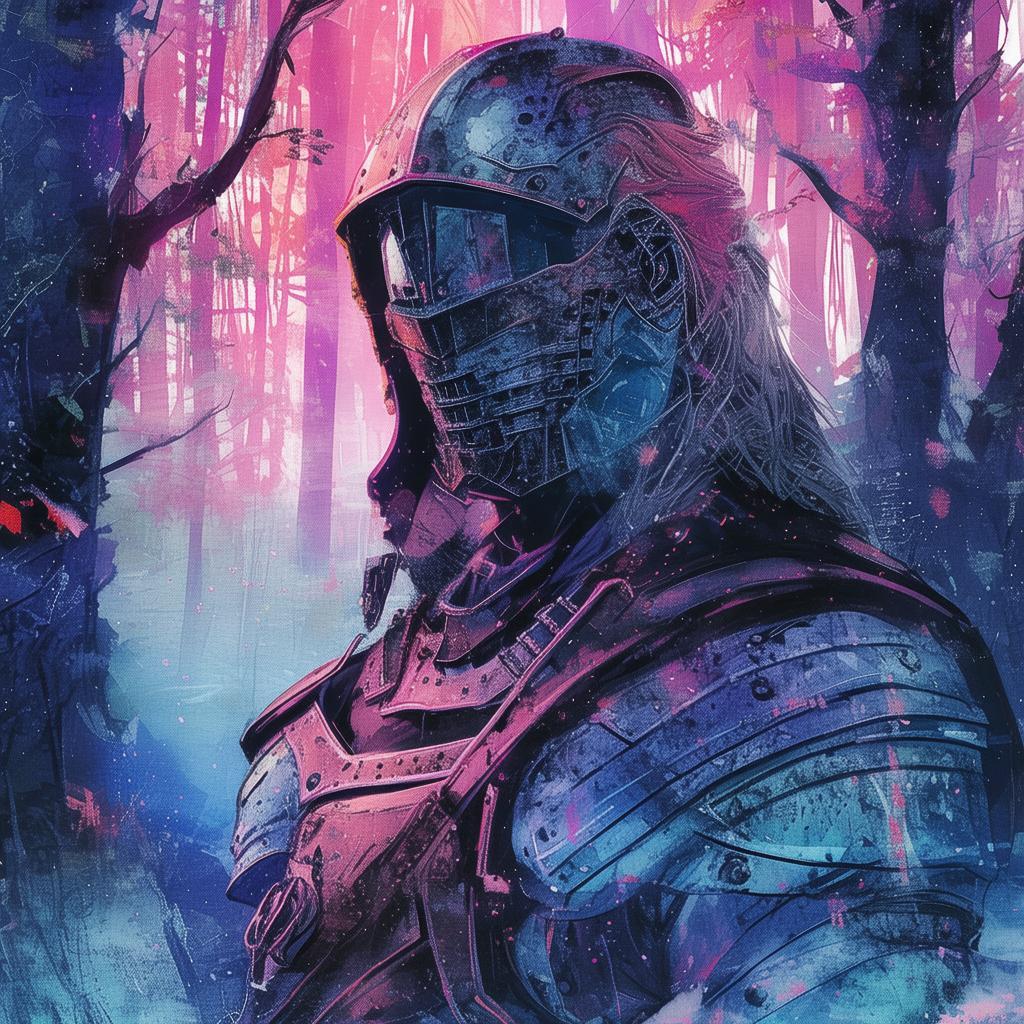
One day, Li Hua met a wise old man who had known about the mirror since childhood. The old man explained that the parallel worlds were a reflection of the choices and actions of the people in both worlds. The mirror was a test, a way to show Li Hua the consequences of his actions and the choices he had made.
Li Hua's journey through the parallel worlds was fraught with emotional conflict. He had to confront the fear of losing the family he had always known, and the desire to have the life he had always dreamed of. He had to choose between his own world and the parallel one, between the life he had and the life he could have.
As Li Hua grappled with these choices, he discovered that the parallel worlds were not just a reflection of his life but a reflection of the human condition. Each choice he made affected the lives of those around him, and the consequences were profound.
One day, Li Hua found himself in a moment of crisis. His father had been poisoned, and there was no cure. In his own world, his father had survived, but in the parallel world, he was dying. Li Hua had to decide whether to save his father in the parallel world, knowing that it would mean losing his own family and life.
The decision was a difficult one, but Li Hua knew that he had to choose. He stepped forward and offered his own blood to save his father. The old man watched in awe as the blood flowed, and the poison was neutralized.
Li Hua's act of self-sacrifice was the turning point in his journey. He realized that the parallel worlds were not just a reflection of his life but a mirror to the human spirit. The choices he made were not just about his own life but about the lives of everyone around him.
In the end, Li Hua returned to his own world, the mirror still in his possession. He had learned that the power of choice could change the course of one's life, and that the consequences of those choices were real and tangible.
The villagers of Guang'an were surprised to see Li Hua return, but they were also relieved. They had been worried about him, and they were grateful for his safe return. Li Hua shared his experiences with the villagers, and they listened in awe.
The mirror was returned to its place of honor in the village hall, and Li Hua became a symbol of hope and courage. He had faced the Guang'an Dilemma and the Parallel Worlds Paradox, and he had emerged stronger and more resolute.
The story of Li Hua spread far and wide, and the villagers of Guang'an were proud to be associated with the brave young man who had faced the ultimate test of character and returned wiser and more compassionate. The Guang'an Dilemma had become a legend, a tale of how the choices we make can shape our lives and the lives of those around us.
And so, the village of Guang'an continued to thrive, with its people living in harmony and remembering the lessons of the parallel worlds. The mirror remained a silent guardian, a reminder that the power of choice was a gift to be cherished and used wisely.
✨ Original Statement ✨
All articles published on this website (including but not limited to text, images, videos, and other content) are original or authorized for reposting and are protected by relevant laws. Without the explicit written permission of this website, no individual or organization may copy, modify, repost, or use the content for commercial purposes.
If you need to quote or cooperate, please contact this site for authorization. We reserve the right to pursue legal responsibility for any unauthorized use.
Hereby declared.
